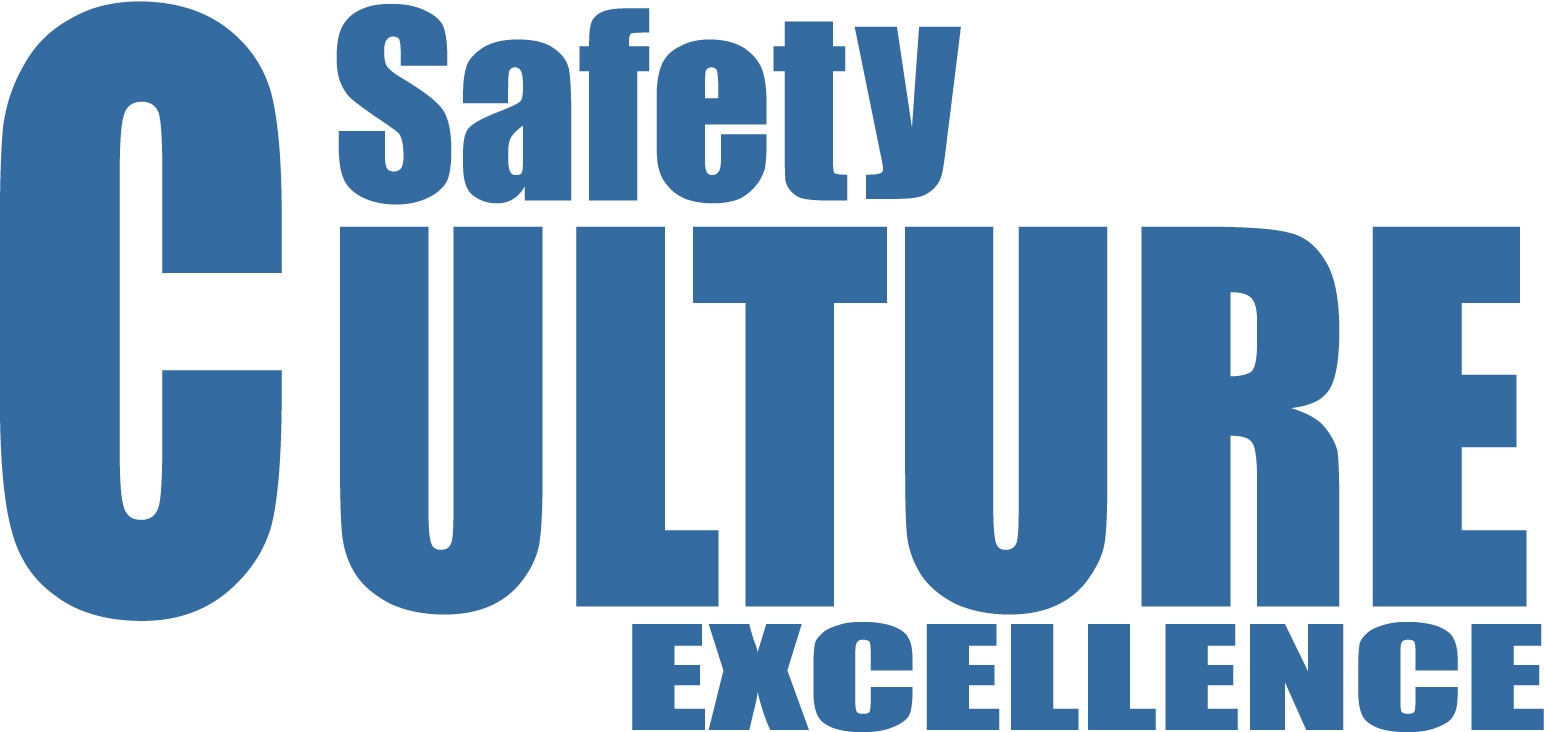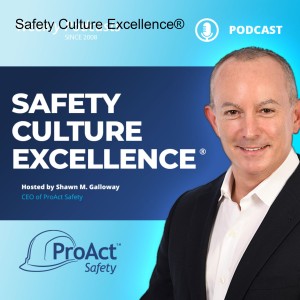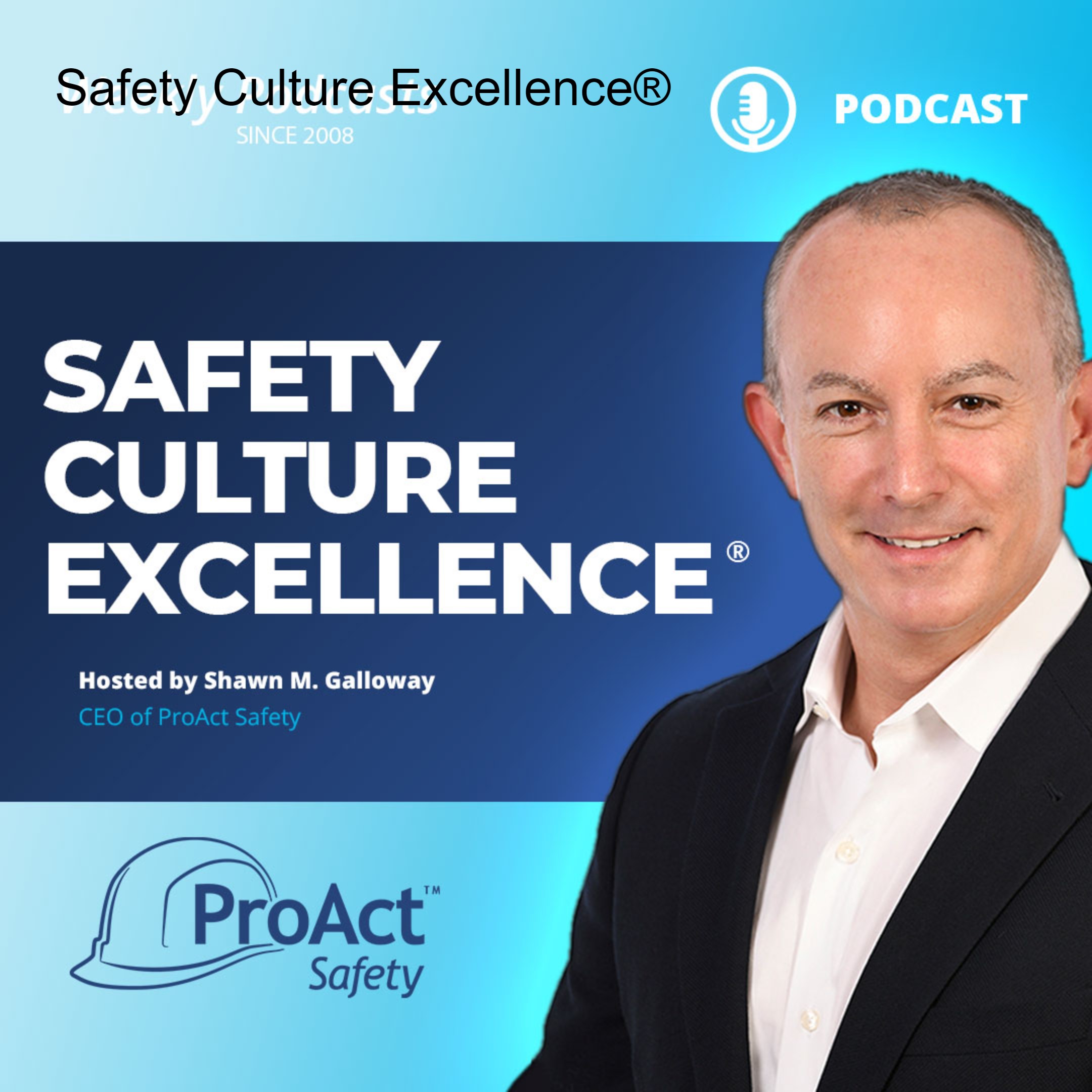Episodes

Wednesday Jul 17, 2013
The Bandwidth of Safety Management: How much can you do at once?
Wednesday Jul 17, 2013
Wednesday Jul 17, 2013
One of the most common mistakes organizations and safety professionals make is to try to do too much at once. It seems logical that more safety-related activities should create better safety awareness and thus result in improved safety performance. This is seldom what happens. Too much at once results in overload and also blocks internalization of important safety principles and practices. Trying to eat the elephant in one bite chokes the eater and aggravates the elephant.
Human attention, like the internet has limited bandwidth. It can only handle a certain amount of information at once. More is not better, it is lost. When organizations and safety professionals focus on specific and well prioritized improvement targets, the human attention machine works well. New precautions are understood and internalized. As the new safety habits and thinking progress, new targets can be added. The organization sees the elephant disappearing a bite at a time and that further motivates progress.
It requires discipline and clear thinking to realize that more is not better and that slower can actually be faster. But keeping safety efforts within the proper bandwidth of the human brain is the best and ultimately fastest path to safety excellence.
-Terry L. Mathis
Terry L. Mathis is the founder and CEO of ProAct Safety, an international safety and performance excellence firm. He is known for his dynamic presentations in the fields of behavioral and cultural safety, leadership, and operational performance, and is a regular speaker at ASSE, NSC, and numerous company and industry conferences. EHS Today listed Terry as a Safety Guru in ‘The 50 People Who Most Influenced EHS’ in 2010, 2011 and 2012-2013. He has been a frequent contributor to industry magazines for over 15 years and is the coauthor of STEPS to Safety Culture Excellence, 2013, WILEY.

Monday Jul 15, 2013
298 - Who Says "Go"? Is Safety Led or Abdicated?
Monday Jul 15, 2013
Monday Jul 15, 2013
Greetings everyone, this podcast recorded while in Shreveport, LA. I’d like to share an article Terry Mathis wrote, published March 2013 in EHS Today Magazine. It was titled, Who Says "Go"? Is Safety Led or Abdicated? The published article can either be found on the magazine’s website or under Insights at www.ProActSafety.com. I hope you enjoy the podcast this week. If you would like to download or play on demand our other podcasts, please visit the ProAct Safety’s podcast website at: http://www.safetycultureexcellence.com. If you would like access to archived podcasts (older than 90 days – dating back to January 2008) please visit www.ProActSafety.com/Store. For more detailed strategies to achieve and sustain excellence in performance and culture, pick up a copy of our book, STEPS to Safety Culture Excellence - http://proactsafety.com/insights/steps-to-safety-culture-excellence Have a great week! Shawn M. Galloway ProAct Safety, Inc

Monday Jul 08, 2013
297 - Challenging the Goal of Safety
Monday Jul 08, 2013
Monday Jul 08, 2013
Greetings everyone, this podcast recorded while in Bastrop, Texas. I’d like to share an article I wrote that was published March 2013 in QHSE Focus Magazine. It was titled, Challenging the Goal of Safety. The published article can either be found on the magazine’s website or under Insights at www.ProActSafety.com. I hope you enjoy the podcast this week. If you would like to download or play on demand our other podcasts, please visit the ProAct Safety’s podcast website at: http://www.safetycultureexcellence.com. If you would like access to archived podcasts (older than 90 days – dating back to January 2008) please visit www.ProActSafety.com/Store. For more detailed strategies to achieve and sustain excellence in performance and culture, pick up a copy of our book, STEPS to Safety Culture Excellence - http://proactsafety.com/insights/steps-to-safety-culture-excellence Have a great week! Shawn M. Galloway ProAct Safety, Inc

Wednesday Jul 03, 2013
Consultant or Salesperson?
Wednesday Jul 03, 2013
Wednesday Jul 03, 2013
A person who has a ready-to-use safety program or process and wants to convince you to use it is a salesperson, not a consultant. Sales is a matter of creating a sense of need that fits the product and closing the sale. It involves a compelling story of past successes and value for the money and creating a desire to join the club of successful users. It might include a profile of other clients broad enough to help you find parallels between them and you. The salesperson must convince you to buy. Then, you seek to make your organization fit the product or process you just purchased. They sell it to you and now you must sell it to the organization.
A consultant is someone who seeks first to understand your unique needs or problems. They then explore what you might have already tried and analyze why it did not produce the desired results. Then, a collaboration begins to find the best strategy for success and the best tactics to make that strategy work. There is no need to sell anything because it has been mutually created. It is customized to fit your organization so there is no need to try to change the organization to fit it.
The difference between these two is profound. The salesperson is often finished with you unless he can sell you something more or gouge you for ongoing royalties or licensing fees to continue using the program or process. The consultant becomes a partner and adviser and only costs more if he adds more value. The program or process your purchased gets used but remains the property of the salesperson. The strategies and tactics you mutually develop with the consultant are your own.
-Terry L. Mathis
Terry L. Mathis is the founder and CEO of ProAct Safety, an international safety and performance excellence firm. He is known for his dynamic presentations in the fields of behavioral and cultural safety, leadership, and operational performance, and is a regular speaker at ASSE, NSC, and numerous company and industry conferences. EHS Today listed Terry as a Safety Guru in ‘The 50 People Who Most Influenced EHS’ in 2010, 2011 and 2012-2013. He has been a frequent contributor to industry magazines for over 15 years and is the coauthor of STEPS to Safety Culture Excellence, 2013, WILEY.

Monday Jul 01, 2013
296 - Stop Trying To Create A Safety Culture
Monday Jul 01, 2013
Monday Jul 01, 2013
Greetings everyone, this podcast recorded while in Bismarck, North Dakota. I’d like to share an article I wrote that was published March 2013 in Occupational Health and Safety Magazine. It was titled, Stop Trying To Create A Safety Culture. The published article can either be found on the magazine’s website or under Insights at www.ProActSafety.com. I hope you enjoy the podcast this week. If you would like to download or play on demand our other podcasts, please visit the ProAct Safety’s podcast website at: http://www.safetycultureexcellence.com. If you would like access to archived podcasts (older than 90 days – dating back to January 2008) please visit www.ProActSafety.com/Store. For more detailed strategies to achieve and sustain excellence in performance and culture, pick up a copy of our book, STEPS to Safety Culture Excellence, available through WILEY (publisher), Amazon or Barnes and Noble. Have a great week! Shawn M. Galloway ProAct Safety, Inc

Wednesday Jun 26, 2013
Do Your Accidents Have Special or Common Cause?
Wednesday Jun 26, 2013
Wednesday Jun 26, 2013
W. Edwards Deming explained a basic concept of manufacturing quality by elaborating on the cause of defects. He explained that some defects had special cause (i.e., some unusual event caused the defect to happen). Other defects happened due to causes that are built into the manufacturing processes itself. He called these common causes.
There is a debate among safety professionals these days about whether accidents are caused more by system issues or simply by human error. The simple fact is that it could be either and that neither is mutually exclusive. Your organization could be having accidents caused by either or both. Finding out the cause is critical during accident investigations and making the distinction between common and special causes can be very useful.
This dichotomy is less useful for fixing blame than it is for fixing problems. Special causes alert us to outside forces to guard against in the future. We can often extend our caution beyond the specific issue to other similar risks or situations. When a foreign object gets into a product, we can protect against that object but also explore what other objects could find their way into our processes and how they could do so. When a special outside issue impacts safety, we can use similar reasoning to increase our awareness and precautions against such risks.
Common causes can be more difficult to recognize because they hide within our systems and influence other actions and decisions that can directly lead to defects and/or accidents. However, it is critical to identify them because they will continue to influence risks until we see and address them. Even what looks like simple human error can be influenced by systems issues. This is one reason for always asking “why?” to find what may lie beyond worker decisions and actions.
Deming left us with a warning about finding out and classifying causes. He said that blame causes fear and that fear causes the hiding and skewing of information critical to understanding causation. We should seek first to understand and then take intelligent action based on that understanding.
-Terry L. Mathis
Terry L. Mathis is the founder and CEO of ProAct Safety, an international safety and performance excellence firm. He is known for his dynamic presentations in the fields of behavioral and cultural safety, leadership, and operational performance, and is a regular speaker at ASSE, NSC, and numerous company and industry conferences. EHS Today listed Terry as a Safety Guru in ‘The 50 People Who Most Influenced EHS’ in 2010, 2011 and 2012-2013. He has been a frequent contributor to industry magazines for over 15 years and is the coauthor of STEPS to Safety Culture Excellence, 2013, WILEY.

Monday Jun 24, 2013
295 - Passionately Proactive: Show Appreciation Before It's Too Late
Monday Jun 24, 2013
Monday Jun 24, 2013
Greetings everyone, this podcast recorded while in Clinton, TN. I’d like to share an article I wrote that was published March 2013 in BIC Magazine. It was titled, Passionately Proactive: Show Appreciation Before It’s Too Late. The published article can either be found on the magazine’s website or under Insights at www.ProActSafety.com. I hope you enjoy the podcast this week. If you would like to download or play on demand our other podcasts, please visit the ProAct Safety’s podcast website at: http://www.safetycultureexcellence.com. If you would like access to archived podcasts (older than 90 days – dating back to January 2008) please visit www.ProActSafety.com/Store. For more detailed strategies to achieve and sustain excellence in performance and culture, pick up a copy of our book, STEPS to Safety Culture Excellence, available through WILEY (publisher), Amazon or Barnes and Noble. Have a great week! Shawn M. Galloway ProAct Safety, Inc

Wednesday Jun 19, 2013
Safety Thinking vs. Safety Habits
Wednesday Jun 19, 2013
Wednesday Jun 19, 2013
In safety there are issues that require a lot of thought and decision making. There are others that only require simple action. These simple actions should be trained as habits and programmed into the auto pilot of workers. It is a total waste of time to muse over whether or not to buckle a seatbelt. Just make buckling an automatic response that is done every time without though or debate. However, don’t allow the engineering crew to refuel the nuclear reactor by habit. Even if the process has steps that are repeated regularly, plan and carry them out very consciously. Analyze the issues and keep everyone on their guard mentally as the process is completed. Check and recheck each step and make sure everyone involved feels free to offer suggestions and voice concerns. Hold a wrap-up meeting to review and ensure that everything is complete and secure before ending the project. Organizations with excellent safety performance recognize this dichotomy. It is critical to differentiate the precautions that require mindless action and those that require careful planning and execution. Confusing one for the other can spell disaster. -Terry L. Mathis Terry L. Mathis is the founder and CEO of ProAct Safety, an international safety and performance excellence firm. He is known for his dynamic presentations in the fields of behavioral and cultural safety, leadership, and operational performance, and is a regular speaker at ASSE, NSC, and numerous company and industry conferences. EHS Today listed Terry as a Safety Guru in ‘The 50 People Who Most Influenced EHS’ in 2010, 2011 and 2012-2013. He has been a frequent contributor to industry magazines for over 15 years and is the coauthor of STEPS to Safety Culture Excellence, 2013, WILEY.

Monday Jun 17, 2013
294 - The Power of Shared Definitions
Monday Jun 17, 2013
Monday Jun 17, 2013
Greetings everyone, this podcast recorded while in Winnipeg, Manitoba. For the podcast this week I’d like to share an article written by Terry Mathis, published in February 2013 in EHS Today Magazine. It was titled, The Power of Shared Definitions. The published article can be found under Insights at www.ProActSafety.com. I hope you enjoy the podcast this week. If you would like to download or play on demand our other podcasts, please visit the ProAct Safety’s podcast website at: http://www.safetycultureexcellence.com. If you would like access to archived podcasts (older than 90 days – dating back to January 2008) please visit www.ProActSafety.com/Store. For more detailed strategies to achieve and sustain excellence in performance and culture, pick up a copy of our book, STEPS to Safety Culture Excellence, available through WILEY (publisher), Amazon or Barnes and Noble. Have a great week! Shawn M. Galloway ProAct Safety, Inc

Wednesday Jun 12, 2013
Is Your Safety Effort Surviving or Thriving
Wednesday Jun 12, 2013
Wednesday Jun 12, 2013
Maslow pointed out that we focus on immediate needs until they are met and then move on to higher goals. Is your safety program still focused on where the next meal is coming from or looking for enlightenment? There is no ideal answer to this question; only an honest one. If you are still struggling to get your workers into basic compliance (i.e. Knowing and following the rules and procedures), you are trying to survive. If you are well past that stage and looking for the next step change beyond your already good results, you are trying to thrive. There is no fault in either case. You probably inherited the current state and are challenged to take it to the next level. What is important is that you recognize your current state and respond accordingly. If you are in survival mode, it is imperative that your supervisors are respected and viewed by workers as friends and not foes. Position and authority don’t matter as much to workers trying to survive as the distinction between friend and foe. Friends are trying to help you survive; foes are trying to make you fail. Workers will follow their friends and not their foes. It is also critically important that you communicate accident data as stories from which you can learn lessons. Survivalists view risk taking as necessary to survival and don’t generalize well. Tell them the story of the accident and let them determine lessons learned from the story. In thrive mode, you need to focus on the passion and purpose of safety excellence. To be excellent, it is not enough to convince workers; you must convert them. Directives will get hands and feet moving. It takes passion to move hearts and minds. It is critically important to recognize the difference and to address it intelligently. Many safety professionals think that more of the same will get them to the next level. Unfortunately, that is seldom the case. The tools of excellence are different from the tools of pretty good. You can be the voice of reason and get the organization from bad to good. You have to be an inspirational leader to get from good to great. -Terry L. Mathis Terry L. Mathis is the founder and CEO of ProAct Safety, an international safety and performance excellence firm. He is known for his dynamic presentations in the fields of behavioral and cultural safety, leadership, and operational performance, and is a regular speaker at ASSE, NSC, and numerous company and industry conferences. EHS Today listed Terry as a Safety Guru in ‘The 50 People Who Most Influenced EHS’ in 2010, 2011 and 2012-2013. He has been a frequent contributor to industry magazines for over 15 years and is the coauthor of STEPS to Safety Culture Excellence, 2013, WILEY.

